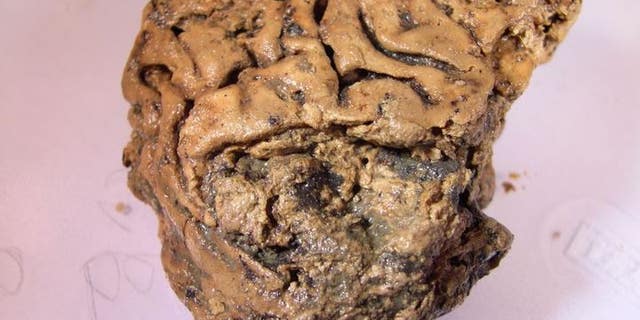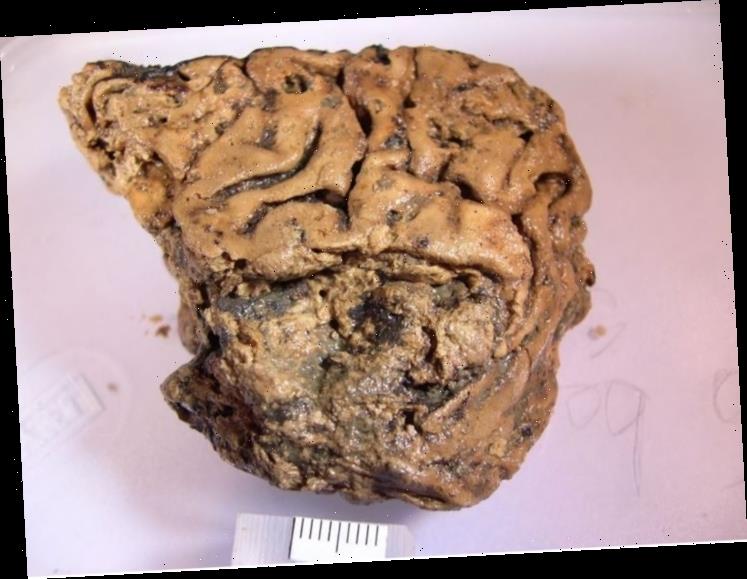Fox News Flash top headlines for Jan. 9
Fox News Flash top headlines for Jan. 9 are here. Check out what’s clicking on Foxnews.com
A 2,600-year-old brain that was discovered in 2008 shocked archaeologists at the time because it was stunningly well-preserved.
Now, scientists believe they understand why the Heslington brain managed to resist decay for so many years.
According to a new study published in Journal of the Royal Society Interface, a number of different factors can play a role in how a brain is preserved, including brain proteins and how the person was buried.
"The manner of this individual’s death, or subsequent burial, may have enabled the brain’s long-term preservation,” said the study’s lead author, Dr. Axel Petzold from UCL Queen Square Institute of Neurology, in a statement.

The Heslington brain has amazed scientists since its discovery.
(Axel Petzold/Journal of the Royal Society Interface)
According to researchers, brains tend to decompose quickly after death in a rapid process of autolysis, where enzymes break up the tissue. However, scientists think that these enzymes must have been deactivated within three months after this individual’s death.
The person is suspected to have been struck in the head or neck or hanged, and subsequently decapitated.
The Heslington brain project was co-funded by the University of York and English Heritage.
Source: Read Full Article

